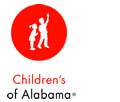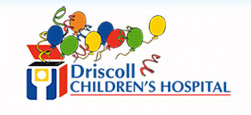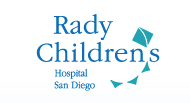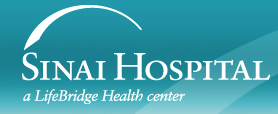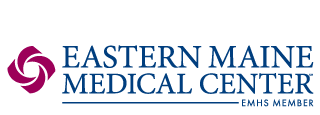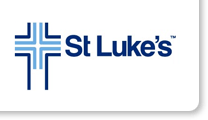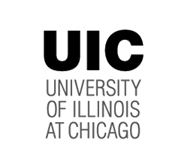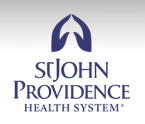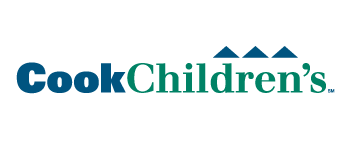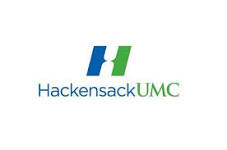Combination Chemotherapy in Treating Young Patients With Newly Diagnosed T-Cell Acute Lymphoblastic Leukemia or T-cell Lymphoblastic Lymphoma
| Status: | Completed |
|---|---|
| Conditions: | Blood Cancer, Lymphoma |
| Therapuetic Areas: | Oncology |
| Healthy: | No |
| Age Range: | 1 - 30 |
| Updated: | 6/17/2018 |
| Start Date: | January 22, 2007 |
| End Date: | September 30, 2017 |
Intensified Methotrexate, Nelarabine (Compound 506U78) and Augmented BFM Therapy for Children and Young Adults With Newly Diagnosed T-cell Acute Lymphoblastic Leukemia (ALL) or T-cell Lymphoblastic Lymphoma
This randomized phase III trial is studying different combination chemotherapy regimens and
their side effects and comparing how well they work in treating young patients with newly
diagnosed T-cell acute lymphoblastic leukemia or T-cell lymphoblastic lymphoma. Drugs used in
chemotherapy work in different ways to stop the growth of cancer cells, either by killing the
cells or by stopping them from dividing. Giving more than one drug (combination chemotherapy)
may kill more cancer cells. It is not yet known which combination chemotherapy regimen is
more effective in treating T-cell acute lymphoblastic leukemia or T-cell lymphoblastic
lymphoma. After a common induction therapy, patients were risk assigned and eligible for one
or both post-induction randomizations: Escalating dose Methotrexate versus High Dose
Methotrexate in Interim Maintenance therapy, No Nelarabine versus Nelarabine in Consolidation
therapy. T-ALL patients are risk assigned as Low Risk, Intermediate Risk or High Risk. Low
Risk patients are not eligible for the Nelarabine randomization, Patients with CNS disease at
diagnosis were assgined to receive High Dose Methotrexate, patients who failed induction
therapy were assigned to receive Nelarabine and High Dose Methotrexate. T-LLy patients were
all assigned to escalating dose Methotrexate and were risk assigned as Standard Risk, High
Risk and induction failures. Standard risk patients did not receive nelarabine, High risk
T-LLy patients were randomized to No Nelarabine versus Nelarabine, and Induction failures
were assigned to receive Nelarabine.
their side effects and comparing how well they work in treating young patients with newly
diagnosed T-cell acute lymphoblastic leukemia or T-cell lymphoblastic lymphoma. Drugs used in
chemotherapy work in different ways to stop the growth of cancer cells, either by killing the
cells or by stopping them from dividing. Giving more than one drug (combination chemotherapy)
may kill more cancer cells. It is not yet known which combination chemotherapy regimen is
more effective in treating T-cell acute lymphoblastic leukemia or T-cell lymphoblastic
lymphoma. After a common induction therapy, patients were risk assigned and eligible for one
or both post-induction randomizations: Escalating dose Methotrexate versus High Dose
Methotrexate in Interim Maintenance therapy, No Nelarabine versus Nelarabine in Consolidation
therapy. T-ALL patients are risk assigned as Low Risk, Intermediate Risk or High Risk. Low
Risk patients are not eligible for the Nelarabine randomization, Patients with CNS disease at
diagnosis were assgined to receive High Dose Methotrexate, patients who failed induction
therapy were assigned to receive Nelarabine and High Dose Methotrexate. T-LLy patients were
all assigned to escalating dose Methotrexate and were risk assigned as Standard Risk, High
Risk and induction failures. Standard risk patients did not receive nelarabine, High risk
T-LLy patients were randomized to No Nelarabine versus Nelarabine, and Induction failures
were assigned to receive Nelarabine.
PRIMARY OBJECTIVES:
I. To determine, through randomization, the relative safety and efficacy of the addition of
nelarabine (Compound 506U78) to augmented Berlin-Frankfurt-Münster (BFM) therapy (Regimen C,
Children's Cancer Group [CCG]-1961).
II. To determine the relative safety and efficacy of high dose methotrexate (5 g/m^2) with
leucovorin (leucovorin calcium) rescue compared to escalating methotrexate without leucovorin
rescue plus pegaspargase (Capizzi I) delivered during interim maintenance.
III. To gain preliminary data on the use of nelarabine in patients with high risk T-cell
lymphoblastic lymphoma and its effect on long-term survival.
SECONDARY OBJECTIVES:
I. To determine the relative safety and efficacy of withholding radiation in patients with
low risk T-cell acute lymphoblastic leukemia (T-ALL), while treating Intermediate and high
risk patients with 1200 cGy of prophylactic cranial radiation.
OUTLINE: This is a randomized, controlled, factorial-group, multicenter study.
GROUP 0 (INDUCTION THERAPY): All patients (T-ALL and T-LLy) receive cytarabine intrathecally
(IT) on day 1; vincristine sulfate intravenously (IV) on days 1, 8, 15, and 22; prednisone IV
or orally (PO) twice daily (BID) on days 1-28; pegaspargase intramuscularly (IM) (may give IV
over 1 to 2 hours) on day 4, 5, or 6; duanorubicin IV on days 1, 8, 15 and 22; and
methotrexate IT on days 8 and 29 (and days 15 and 22 for patients with CNS3 disease).
GROUP I ARM I COMBINATION CHEMOTHERAPY (CONSOLIDATION CHEMOTHERAPY): Patients receive
methotrexate IT on days 1, 8, 15, and 22; cyclophosphamide IV over 30 minutes on days 1 and
29; cytarabine IV over 15-30 minutes or subcutaneously (SC) on days 1-4, 8-11, 29-32, and
36-39; mercaptopurine PO on days 1-14 and 29-42; vincristine sulfate IV on days 15, 22, 43
and 50; and pegaspargase IM or IV over 1-2 hours on days 15 and 43. Patients with DS also
receive leucovorin calcium PO at 48 and 60 hours after each methotrexate dose. Patients with
persistent testicular disease or with DS and testicular disease undergo testicular
radiotherapy on days 11-12, 15-19, and 22-26. (DS patients excluded as of 09/29/10.) Patients
with intermediate-risk or high-risk disease (CNS1 or CNS2) undergo prophylactic CRT (1,200
cGy/dose) QD on days 15-21 and 22-28. Patients with low-risk disease do not undergo conformal
radiation therapy (CRT). Patients with standard risk T-LLy received Arm I, and those with
high risk T-LLy were randomized between Arm I and Arm II combination chemotherapy.
GROUP I ARM I COMBINATION CHEMOTHERAPY (DELAYED INTENSIFICATION CHEMOTHERAPY): Patients
receive vincristine sulfate IV on days 1, 8, 15, 43, and 50; dexamethasone IV or PO BID on
days 1-21 (for patients < 10 years of age) OR on days 1-7 and 15-21 (for patients >= 10 years
of age and for patients with DS); doxorubicin hydrochloride IV on days 1, 8, and 15;
pegaspargase IM or IV over 1-2 hours on day 4, 5, OR 6, AND day 43; methotrexate IT on days
1, 29, and 36; cyclophosphamide IV over 30 minutes on day 29; cytarabine IV over 15-30
minutes or SC on days 29-32 and 36-39; and thioguanine PO on days 29-42. Patients with DS
also receive leucovorin calcium PO at 48 and 60 hours after each methotrexate dose (DS
patients excluded as of 09/29/10). Standard risk T-LLy patients were assigned to Arm I and
those with high risk were randomized between Arm I and Arm II.
GROUP I ARM I COMBINATION CHEMOTHERAPY (INTERIM MAINTENANCE CHEMOTHERAPY): Patients receive
vincristine sulfate IV and escalating doses of methotrexate IV on days 1, 11, 21, 31, and 41;
pegaspargase* IM or IV over 1-2 hours on days 2 and 22; and methotrexate IT on days 1 and 31.
Patients with DS also receive leucovorin calcium PO 48 and 60 hours after each methotrexate
IT dose (DS patients excluded as of 09/29/10).
Note: *Patients with an allergy to pegaspargase receive Erwinia asparaginase on days 2, 4, 6,
8, 10, 12, 22, 24, 26, 28, 30, and 32.
GROUP I ARM I COMBINATION CHEMOTHERAPY (MAINTENANCE CHEMOTHERAPY): Patients receive
vincristine sulfate IV on days 1, 29, and 57; prednisone PO BID on days 1-5, 29-33, and
57-61; mercaptopurine PO QD on days 1-84; methotrexate PO on days 8, 15, 22, 29, 36, 43, 50,
57, 64, 71, and 78; and methotrexate IT on day 1. Treatment repeats every 84 days until the
total duration of study treatment is 2 years from the start of interim maintenance therapy
(approximately week 119) (for girls with T-ALL), all patients with T-LLy, and 3 years from
the start of interim maintenance therapy (approximately week 171) (for boys with T-ALL).
GROUP I ARM II COMBINATION CHEMOTHERAPY (CONSOLIDATION CHEMOTHERAPY): Patients receive
nelarabine IV over 60 minutes on days 1-5 and 43-47; methotrexate IT on days 15, 22, 57, and
64; cyclophosphamide IV over 30 minutes on days 8 and 50; cytarabine IV over 15-30 minutes or
SC on days 8-11, 15-18, 50-53 and 57-60; mercaptopurine PO on days 8-21 and 50-63;
vincristine sulfate IV on days 22, 29, 64, and 71; and pegaspargase IM or IV over 1-2 hours
on days 22 and 64. Patients with persistent testicular disease or with DS and testicular
disease undergo testicular radiotherapy on days 15, 22-26, and 29-33 (DS patients excluded as
of 09/29/10). (Patients with intermediate-risk or high-risk disease (CNS1 or CNS2) undergo
prophylactic CRT QD on days 22-28 and 29-35. Patients with high risk T-LLy were either
randomized to Arm I or Arm II. Patients with T-LLy who failed induction therapy were assigned
to Arm II.
GROUP I ARM II COMBINATION CHEMOTHERAPY (DELAYED INTENSIFICATION CHEMOTHERAPY): Patients
receive vincristine sulfate IV on days 1, 8, 15, and 50; dexamethasone IV or PO BID on days
1-21 (for patients < 10 years of age) OR on days 1-7 and 15-21 (for patients >= 10 years of
age); doxorubicin hydrochloride IV on days 1, 8, and 15; pegaspargase IM or IV over 1-2 hours
on day 4, 5, OR 6 AND day 50; methotrexate IT on days 1, 36, and 43; nelarabine IV over 60
minutes on days 29-33; cyclophosphamide IV over 30 minutes on day 36; cytarabine IV over
15-30 minutes or SC on days 36-39 and 43-46; and thioguanine PO on days 36-49.
GROUP I ARM II COMBINATION CHEMOTHERAPY (INTERIM MAINTENANCE CHEMOTHERAPY): Patients receive
vincristine sulfate IV and escalating doses of methotrexate IV on days 1, 11, 21, 31, and 41;
pegaspargase* IM or IV over 1-2 hours on days 2 and 22; and methotrexate IT on days 1 and 31.
Note: *Patients with an allergy to pegaspargase receive Erwinia asparaginase on Monday,
Wednesday and Friday for two consecutive weeks starting the day of asparaginase substitution.
GROUP I ARM II COMBINATION CHEMOTHERAPY (MAINTENANCE CHEMOTHERAPY): Patients receive
vincristine sulfate, prednisone, mercaptopurine, methotrexate PO, methotrexate IT, and
nelarabine in Cycles 1, 2 and 3. Patients then receive treatment (without nelarabine) as
follows: vincristine sulfate, prednisone, mercaptopurine, methotrexate PO, and methotrexate
IT as in arm II. Treatment (without nelarabine) repeats every 84 days until the total
duration of study treatment is 2 years from the start of interim maintenance therapy
(approximately week 121) (for girls with T-ALL), and for those with T-LLY, and 3 years from
the start of interim maintenance therapy (approximately week 173) (for boys with T-ALL).
GROUP I ARM III COMBINATION CHEMOTHERAPY (CONSOLIDATION CHEMOTHERAPY): Patients receive
methotrexate IT on days 1, 8, 15, and 22; cyclophosphamide IV over 30 minutes on days 1 and
29; cytarabine IV over 15-30 minutes or SC on days 1-4, 8-11, 29-32, and 36-39;
mercaptopurine PO on days 1-14 and 29-42; vincristine sulfate IV on days 15, 22, 43 and 50;
and pegaspargase IM or IV over 1-2 hours on days 15 and 43. Patients with DS also receive
leucovorin calcium PO at 48 and 60 hours after each methotrexate dose. Patients with
persistent testicular disease or with DS and testicular disease undergo testicular
radiotherapy on days 11-12, 15-19, and 22-26. (DS patients excluded as of 09/29/10.) Patients
with intermediate-risk or high-risk disease (CNS1 or CNS2) undergo prophylactic CRT (1,200
cGy/dose) QD on days 15-21 and 22-28. Patients with low-risk disease do not undergo CRT.
GROUP I ARM III COMBINATION CHEMOTHERAPY (DELAYED INTENSIFICATION CHEMOTHERAPY): Patients
receive vincristine sulfate IV on days 1, 8, 15, 43, and 50; dexamethasone IV or PO BID on
days 1-21 (for patients < 10 years of age) OR on days 1-7 and 15-21 (for patients >= 10 years
of age and for patients with DS); doxorubicin hydrochloride IV on days 1, 8, and 15;
pegaspargase IM or IV over 1-2 hours on day 4, 5, OR 6, AND day 43; methotrexate IT on days
1, 29, and 36; cyclophosphamide IV over 30 minutes on day 29; cytarabine IV over 15-30
minutes or SC on days 29-32 and 36-39; and thioguanine PO on days 29-42. Patients with DS
also receive leucovorin calcium PO at 48 and 60 hours after each methotrexate dose (DS
patients excluded as of 09/29/10).
GROUP I ARM III COMBINATION CHEMOTHERAPY (INTERIM MAINTENANCE CHEMOTHERAPY): Patients receive
high dose methotrexate (HDMTX) IV over 24 hours and vincristine sulfate IV on days 1, 15, 29,
and 43; mercaptopurine PO on days 1-56; and methotrexate IT on days 1 and 29. Beginning 42
hours after the start of HDMTX, patients also receive leucovorin calcium IV or PO once every
6 hours for 3 doses.
GROUP I ARM III COMBINATION CHEMOTHERAPY (MAINTENANCE CHEMOTHERAPY): Patients receive
vincristine sulfate IV on days 1, 29, and 57; prednisone PO BID on days 1-5, 29-33, and
57-61; mercaptopurine PO QD on days 1-84; methotrexate PO on days 8, 15, 22, 29, 36, 43, 50,
57, 64, 71, and 78; and methotrexate IT on day 1. Treatment repeats every 84 days until the
total duration of study treatment is 2 years from the start of interim maintenance therapy
(approximately week 119) (for girls with T-ALL) and all patients with T-LLy, and 3 years from
the start of interim maintenance therapy (approximately week 171) (for boys with T-ALL).
GROUP I ARM IV COMBINATION CHEMOTHERAPY (CONSOLIDATION CHEMOTHERAPY): Patients receive
nelarabine IV over 60 minutes on days 1-5 and 43-47; methotrexate IT on days 15, 22, 57, and
64; cyclophosphamide IV over 30 minutes on days 8 and 50; cytarabine IV over 15-30 minutes or
SC on days 8-11, 15-18, 50-53 and 57-60; mercaptopurine PO on days 8-21 and 50-63;
vincristine sulfate IV on days 22, 29, 64, and 71; and pegaspargase IM or IV over 1-2 hours
on days 22 and 64. (DS patients excluded as of 09/29/10). (Patients with intermediate-risk or
high-risk disease (CNS1 or CNS2) undergo prophylactic CRT QD on days 22-28 and 29-35.
GROUP I ARM IV COMBINATION CHEMOTHERAPY (DELAYED INTENSIFICATION CHEMOTHERAPY): Patients
receive vincristine sulfate IV on days 1, 8, 15, and 50; dexamethasone IV or PO BID on days
1-21 (for patients < 10 years of age) OR on days 1-7 and 15-21 (for patients >= 10 years of
age); doxorubicin hydrochloride IV on days 1, 8, and 15; pegaspargase IM or IV over 1-2 hours
on day 4, 5, OR 6 AND day 50; methotrexate IT on days 1, 36, and 43; nelarabine IV over 60
minutes on days 29-33; cyclophosphamide IV over 30 minutes on day 36; cytarabine IV over
15-30 minutes or SC on days 36-39 and 43-46; and thioguanine PO on days 36-49.
GROUP I ARM IV COMBINATION CHEMOTHERAPY (INTERIM MAINTENANCE CHEMOTHERAPY): Patients receive
HDMTX IV over 24 hours and vincristine sulfate IV on days 1, 15, 29, and 43; mercaptopurine
PO on days 1-56; and methotrexate IT on days 1 and 29. Beginning 42 hours after the start of
HDMTX, patients also receive leucovorin calcium IV or PO once every 6 hours for 3 doses.
GROUP I ARM IV COMBINATION CHEMOTHERAPY (MAINTENANCE CHEMOTHERAPY): Patients receive
vincristine sulfate, prednisone, mercaptopurine, methotrexate PO, methotrexate IT, and
nelarabine in Cycles 1, 2 and 3. Patients then receive treatment (without nelarabine) as
follows: vincristine sulfate, prednisone, mercaptopurine, methotrexate PO, and methotrexate
IT as in arm II. Treatment (without nelarabine) repeats every 84 days until the total
duration of study treatment is 2 years from the start of interim maintenance therapy
(approximately week 121) (for girls with T-ALL), and for those with T-LLY, and 3 years from
the start of interim maintenance therapy (approximately week 173) (for boys with T-ALL).
After completion of study therapy, patients are followed periodically for at least 10 years.
I. To determine, through randomization, the relative safety and efficacy of the addition of
nelarabine (Compound 506U78) to augmented Berlin-Frankfurt-Münster (BFM) therapy (Regimen C,
Children's Cancer Group [CCG]-1961).
II. To determine the relative safety and efficacy of high dose methotrexate (5 g/m^2) with
leucovorin (leucovorin calcium) rescue compared to escalating methotrexate without leucovorin
rescue plus pegaspargase (Capizzi I) delivered during interim maintenance.
III. To gain preliminary data on the use of nelarabine in patients with high risk T-cell
lymphoblastic lymphoma and its effect on long-term survival.
SECONDARY OBJECTIVES:
I. To determine the relative safety and efficacy of withholding radiation in patients with
low risk T-cell acute lymphoblastic leukemia (T-ALL), while treating Intermediate and high
risk patients with 1200 cGy of prophylactic cranial radiation.
OUTLINE: This is a randomized, controlled, factorial-group, multicenter study.
GROUP 0 (INDUCTION THERAPY): All patients (T-ALL and T-LLy) receive cytarabine intrathecally
(IT) on day 1; vincristine sulfate intravenously (IV) on days 1, 8, 15, and 22; prednisone IV
or orally (PO) twice daily (BID) on days 1-28; pegaspargase intramuscularly (IM) (may give IV
over 1 to 2 hours) on day 4, 5, or 6; duanorubicin IV on days 1, 8, 15 and 22; and
methotrexate IT on days 8 and 29 (and days 15 and 22 for patients with CNS3 disease).
GROUP I ARM I COMBINATION CHEMOTHERAPY (CONSOLIDATION CHEMOTHERAPY): Patients receive
methotrexate IT on days 1, 8, 15, and 22; cyclophosphamide IV over 30 minutes on days 1 and
29; cytarabine IV over 15-30 minutes or subcutaneously (SC) on days 1-4, 8-11, 29-32, and
36-39; mercaptopurine PO on days 1-14 and 29-42; vincristine sulfate IV on days 15, 22, 43
and 50; and pegaspargase IM or IV over 1-2 hours on days 15 and 43. Patients with DS also
receive leucovorin calcium PO at 48 and 60 hours after each methotrexate dose. Patients with
persistent testicular disease or with DS and testicular disease undergo testicular
radiotherapy on days 11-12, 15-19, and 22-26. (DS patients excluded as of 09/29/10.) Patients
with intermediate-risk or high-risk disease (CNS1 or CNS2) undergo prophylactic CRT (1,200
cGy/dose) QD on days 15-21 and 22-28. Patients with low-risk disease do not undergo conformal
radiation therapy (CRT). Patients with standard risk T-LLy received Arm I, and those with
high risk T-LLy were randomized between Arm I and Arm II combination chemotherapy.
GROUP I ARM I COMBINATION CHEMOTHERAPY (DELAYED INTENSIFICATION CHEMOTHERAPY): Patients
receive vincristine sulfate IV on days 1, 8, 15, 43, and 50; dexamethasone IV or PO BID on
days 1-21 (for patients < 10 years of age) OR on days 1-7 and 15-21 (for patients >= 10 years
of age and for patients with DS); doxorubicin hydrochloride IV on days 1, 8, and 15;
pegaspargase IM or IV over 1-2 hours on day 4, 5, OR 6, AND day 43; methotrexate IT on days
1, 29, and 36; cyclophosphamide IV over 30 minutes on day 29; cytarabine IV over 15-30
minutes or SC on days 29-32 and 36-39; and thioguanine PO on days 29-42. Patients with DS
also receive leucovorin calcium PO at 48 and 60 hours after each methotrexate dose (DS
patients excluded as of 09/29/10). Standard risk T-LLy patients were assigned to Arm I and
those with high risk were randomized between Arm I and Arm II.
GROUP I ARM I COMBINATION CHEMOTHERAPY (INTERIM MAINTENANCE CHEMOTHERAPY): Patients receive
vincristine sulfate IV and escalating doses of methotrexate IV on days 1, 11, 21, 31, and 41;
pegaspargase* IM or IV over 1-2 hours on days 2 and 22; and methotrexate IT on days 1 and 31.
Patients with DS also receive leucovorin calcium PO 48 and 60 hours after each methotrexate
IT dose (DS patients excluded as of 09/29/10).
Note: *Patients with an allergy to pegaspargase receive Erwinia asparaginase on days 2, 4, 6,
8, 10, 12, 22, 24, 26, 28, 30, and 32.
GROUP I ARM I COMBINATION CHEMOTHERAPY (MAINTENANCE CHEMOTHERAPY): Patients receive
vincristine sulfate IV on days 1, 29, and 57; prednisone PO BID on days 1-5, 29-33, and
57-61; mercaptopurine PO QD on days 1-84; methotrexate PO on days 8, 15, 22, 29, 36, 43, 50,
57, 64, 71, and 78; and methotrexate IT on day 1. Treatment repeats every 84 days until the
total duration of study treatment is 2 years from the start of interim maintenance therapy
(approximately week 119) (for girls with T-ALL), all patients with T-LLy, and 3 years from
the start of interim maintenance therapy (approximately week 171) (for boys with T-ALL).
GROUP I ARM II COMBINATION CHEMOTHERAPY (CONSOLIDATION CHEMOTHERAPY): Patients receive
nelarabine IV over 60 minutes on days 1-5 and 43-47; methotrexate IT on days 15, 22, 57, and
64; cyclophosphamide IV over 30 minutes on days 8 and 50; cytarabine IV over 15-30 minutes or
SC on days 8-11, 15-18, 50-53 and 57-60; mercaptopurine PO on days 8-21 and 50-63;
vincristine sulfate IV on days 22, 29, 64, and 71; and pegaspargase IM or IV over 1-2 hours
on days 22 and 64. Patients with persistent testicular disease or with DS and testicular
disease undergo testicular radiotherapy on days 15, 22-26, and 29-33 (DS patients excluded as
of 09/29/10). (Patients with intermediate-risk or high-risk disease (CNS1 or CNS2) undergo
prophylactic CRT QD on days 22-28 and 29-35. Patients with high risk T-LLy were either
randomized to Arm I or Arm II. Patients with T-LLy who failed induction therapy were assigned
to Arm II.
GROUP I ARM II COMBINATION CHEMOTHERAPY (DELAYED INTENSIFICATION CHEMOTHERAPY): Patients
receive vincristine sulfate IV on days 1, 8, 15, and 50; dexamethasone IV or PO BID on days
1-21 (for patients < 10 years of age) OR on days 1-7 and 15-21 (for patients >= 10 years of
age); doxorubicin hydrochloride IV on days 1, 8, and 15; pegaspargase IM or IV over 1-2 hours
on day 4, 5, OR 6 AND day 50; methotrexate IT on days 1, 36, and 43; nelarabine IV over 60
minutes on days 29-33; cyclophosphamide IV over 30 minutes on day 36; cytarabine IV over
15-30 minutes or SC on days 36-39 and 43-46; and thioguanine PO on days 36-49.
GROUP I ARM II COMBINATION CHEMOTHERAPY (INTERIM MAINTENANCE CHEMOTHERAPY): Patients receive
vincristine sulfate IV and escalating doses of methotrexate IV on days 1, 11, 21, 31, and 41;
pegaspargase* IM or IV over 1-2 hours on days 2 and 22; and methotrexate IT on days 1 and 31.
Note: *Patients with an allergy to pegaspargase receive Erwinia asparaginase on Monday,
Wednesday and Friday for two consecutive weeks starting the day of asparaginase substitution.
GROUP I ARM II COMBINATION CHEMOTHERAPY (MAINTENANCE CHEMOTHERAPY): Patients receive
vincristine sulfate, prednisone, mercaptopurine, methotrexate PO, methotrexate IT, and
nelarabine in Cycles 1, 2 and 3. Patients then receive treatment (without nelarabine) as
follows: vincristine sulfate, prednisone, mercaptopurine, methotrexate PO, and methotrexate
IT as in arm II. Treatment (without nelarabine) repeats every 84 days until the total
duration of study treatment is 2 years from the start of interim maintenance therapy
(approximately week 121) (for girls with T-ALL), and for those with T-LLY, and 3 years from
the start of interim maintenance therapy (approximately week 173) (for boys with T-ALL).
GROUP I ARM III COMBINATION CHEMOTHERAPY (CONSOLIDATION CHEMOTHERAPY): Patients receive
methotrexate IT on days 1, 8, 15, and 22; cyclophosphamide IV over 30 minutes on days 1 and
29; cytarabine IV over 15-30 minutes or SC on days 1-4, 8-11, 29-32, and 36-39;
mercaptopurine PO on days 1-14 and 29-42; vincristine sulfate IV on days 15, 22, 43 and 50;
and pegaspargase IM or IV over 1-2 hours on days 15 and 43. Patients with DS also receive
leucovorin calcium PO at 48 and 60 hours after each methotrexate dose. Patients with
persistent testicular disease or with DS and testicular disease undergo testicular
radiotherapy on days 11-12, 15-19, and 22-26. (DS patients excluded as of 09/29/10.) Patients
with intermediate-risk or high-risk disease (CNS1 or CNS2) undergo prophylactic CRT (1,200
cGy/dose) QD on days 15-21 and 22-28. Patients with low-risk disease do not undergo CRT.
GROUP I ARM III COMBINATION CHEMOTHERAPY (DELAYED INTENSIFICATION CHEMOTHERAPY): Patients
receive vincristine sulfate IV on days 1, 8, 15, 43, and 50; dexamethasone IV or PO BID on
days 1-21 (for patients < 10 years of age) OR on days 1-7 and 15-21 (for patients >= 10 years
of age and for patients with DS); doxorubicin hydrochloride IV on days 1, 8, and 15;
pegaspargase IM or IV over 1-2 hours on day 4, 5, OR 6, AND day 43; methotrexate IT on days
1, 29, and 36; cyclophosphamide IV over 30 minutes on day 29; cytarabine IV over 15-30
minutes or SC on days 29-32 and 36-39; and thioguanine PO on days 29-42. Patients with DS
also receive leucovorin calcium PO at 48 and 60 hours after each methotrexate dose (DS
patients excluded as of 09/29/10).
GROUP I ARM III COMBINATION CHEMOTHERAPY (INTERIM MAINTENANCE CHEMOTHERAPY): Patients receive
high dose methotrexate (HDMTX) IV over 24 hours and vincristine sulfate IV on days 1, 15, 29,
and 43; mercaptopurine PO on days 1-56; and methotrexate IT on days 1 and 29. Beginning 42
hours after the start of HDMTX, patients also receive leucovorin calcium IV or PO once every
6 hours for 3 doses.
GROUP I ARM III COMBINATION CHEMOTHERAPY (MAINTENANCE CHEMOTHERAPY): Patients receive
vincristine sulfate IV on days 1, 29, and 57; prednisone PO BID on days 1-5, 29-33, and
57-61; mercaptopurine PO QD on days 1-84; methotrexate PO on days 8, 15, 22, 29, 36, 43, 50,
57, 64, 71, and 78; and methotrexate IT on day 1. Treatment repeats every 84 days until the
total duration of study treatment is 2 years from the start of interim maintenance therapy
(approximately week 119) (for girls with T-ALL) and all patients with T-LLy, and 3 years from
the start of interim maintenance therapy (approximately week 171) (for boys with T-ALL).
GROUP I ARM IV COMBINATION CHEMOTHERAPY (CONSOLIDATION CHEMOTHERAPY): Patients receive
nelarabine IV over 60 minutes on days 1-5 and 43-47; methotrexate IT on days 15, 22, 57, and
64; cyclophosphamide IV over 30 minutes on days 8 and 50; cytarabine IV over 15-30 minutes or
SC on days 8-11, 15-18, 50-53 and 57-60; mercaptopurine PO on days 8-21 and 50-63;
vincristine sulfate IV on days 22, 29, 64, and 71; and pegaspargase IM or IV over 1-2 hours
on days 22 and 64. (DS patients excluded as of 09/29/10). (Patients with intermediate-risk or
high-risk disease (CNS1 or CNS2) undergo prophylactic CRT QD on days 22-28 and 29-35.
GROUP I ARM IV COMBINATION CHEMOTHERAPY (DELAYED INTENSIFICATION CHEMOTHERAPY): Patients
receive vincristine sulfate IV on days 1, 8, 15, and 50; dexamethasone IV or PO BID on days
1-21 (for patients < 10 years of age) OR on days 1-7 and 15-21 (for patients >= 10 years of
age); doxorubicin hydrochloride IV on days 1, 8, and 15; pegaspargase IM or IV over 1-2 hours
on day 4, 5, OR 6 AND day 50; methotrexate IT on days 1, 36, and 43; nelarabine IV over 60
minutes on days 29-33; cyclophosphamide IV over 30 minutes on day 36; cytarabine IV over
15-30 minutes or SC on days 36-39 and 43-46; and thioguanine PO on days 36-49.
GROUP I ARM IV COMBINATION CHEMOTHERAPY (INTERIM MAINTENANCE CHEMOTHERAPY): Patients receive
HDMTX IV over 24 hours and vincristine sulfate IV on days 1, 15, 29, and 43; mercaptopurine
PO on days 1-56; and methotrexate IT on days 1 and 29. Beginning 42 hours after the start of
HDMTX, patients also receive leucovorin calcium IV or PO once every 6 hours for 3 doses.
GROUP I ARM IV COMBINATION CHEMOTHERAPY (MAINTENANCE CHEMOTHERAPY): Patients receive
vincristine sulfate, prednisone, mercaptopurine, methotrexate PO, methotrexate IT, and
nelarabine in Cycles 1, 2 and 3. Patients then receive treatment (without nelarabine) as
follows: vincristine sulfate, prednisone, mercaptopurine, methotrexate PO, and methotrexate
IT as in arm II. Treatment (without nelarabine) repeats every 84 days until the total
duration of study treatment is 2 years from the start of interim maintenance therapy
(approximately week 121) (for girls with T-ALL), and for those with T-LLY, and 3 years from
the start of interim maintenance therapy (approximately week 173) (for boys with T-ALL).
After completion of study therapy, patients are followed periodically for at least 10 years.
Inclusion Criteria:
- T-ALL patients must be enrolled on AALL08B1 prior to treatment and enrollment on
AALL0434
- Patients must have newly diagnosed T-ALL or T-lineage lymphoblastic lymphoma (T-NHL)
stage II-IV; B-lineage lymphoblastic lymphoma will not be eligible for this study; a
diagnosis of T-ALL is established when leukemic blasts lack myeloperoxidase or
evidence of B-lineage derivation (cluster of differentiation [CD]19/CD22/CD20), and
express either surface or cytoplasmic CD3 or two or more of the antigens CD8, CD7,
CD5, CD4, CD2 or CD1a; if surface CD3 is expressed on all leukemic cells, additional
markers of immaturity, including transmission disequilibrium test (TdT), CD34 or CD99
will be assessed for expression; cases with uncertain expression will receive
additional review within the appropriate Children's Oncology Group (COG) reference
laboratory
- T-NHL PATIENTS:
- For T-NHL patients with tissue available for flow cytometry, the criterion for
diagnosis should be analogous to T-ALL; for tissue processed by other means (i.e.
paraffin blocks), the methodology and criteria for immunophenotypic analysis to
establish the diagnosis of T-NHL defined by the submitting institution will be
accepted
- Prior therapy restrictions
- Patients shall have had no prior cytotoxic chemotherapy with the exception of
steroids and/or IT cytarabine
- IT chemotherapy with cytarabine is allowed prior to registration for patient
convenience; this is usually done at the time of the diagnostic bone marrow or
venous line placement to avoid a second lumbar puncture; (Note: the CNS status
must be determined based on a sample obtained prior to administration of any
systemic or intrathecal chemotherapy, except for steroid pretreatment); systemic
chemotherapy must begin within 72 hours of this IT therapy
- Patients diagnosed as having T-NHL or T-ALL with respiratory distress or
hyperleukocytosis may require steroids prior to the initiation of additional
systemic therapy; they are eligible for AALL0434 and will be stratified, based on
the initial complete blood count (CBC); steroid pretreatment may alter the risk
group assessment; if the T-ALL patient's clinical status precludes a lumbar
puncture within 48 hours of the initiation of steroid therapy, T-ALL patients
CANNOT be classified as low risk and will be Intermediate or high risk based on
the results of the day 29 marrow as above; patients with T-NHL who receive
steroid pre-treatment will be classified as high risk; the dose and duration of
previous steroid therapy should be carefully documented
- For the management of airway compromise, patients who have received emergent
chest irradiation up to 600 cGy will be eligible for this study
- Patients with a prior seizure disorder requiring anti-convulsant therapy are not
eligible to receive nelarabine; in addition, patients with pre-existing grade 2 (or
greater) peripheral neurotoxicity, as determined prior to Induction treatment by the
treating physician or a neurologist, are not eligible to receive nelarabine; these
restrictions in eligibility are designed to prevent excessive nelarabine-induced
central and peripheral neurotoxicity in at-risk patients; for the purposes of this
study, this includes any patient that has received anticonvulsant therapy to
prevent/treat seizures in the prior two years
Exclusion Criteria:
- Pregnant or lactating females are ineligible
- Patients with Down syndrome are ineligible to enroll onto this study
- For T-NHL patients the following additional exclusion criteria apply:
- B-precursor lymphoblastic lymphoma
- Morphologically unclassifiable lymphoma
- Absence of both B-cell and T-cell phenotype markers in a case submitted as
lymphoblastic lymphoma
- CNS3-positive or testicular involvement
We found this trial at
192
sites
Brooklyn Hospital Center Welcome to The Brooklyn Hospital Center, dedicated to Keeping Brooklyn healthy and...
Click here to add this to my saved trials
1201 Camino de Salud Northeast
Albuquerque, New Mexico 87131
Albuquerque, New Mexico 87131
(505) 272-4946

University of New Mexico Cancer Center It’s been 40 years since the New Mexico State...
Click here to add this to my saved trials
4900 Mueller Boulevard
Austin, Texas 78723
Austin, Texas 78723
(512) 324-0000
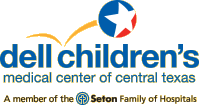
Dell Children's Medical Center of Central Texas Welcome to Dell Children
Click here to add this to my saved trials
2545 Schoenersville Rd
Bethlehem, Pennsylvania 18017
Bethlehem, Pennsylvania 18017
(484) 884-2200

Lehigh Valley Hospital - Muhlenberg At Lehigh Valley Health Network, we continually go the extra...
Click here to add this to my saved trials
Children's Hospital of Alabama Children
Click here to add this to my saved trials
Roswell Park Cancer Institute Welcome to Roswell Park Cancer Institute (RPCI), America's first cancer center...
Click here to add this to my saved trials
1 South Prospect Street
Burlington, Vermont 05401
Burlington, Vermont 05401
802-656-8990
Click here to add this to my saved trials
1300 Jefferson Park Avenue
Charlottesville, Virginia 22908
Charlottesville, Virginia 22908
434-243-6784

University of Virginia Cancer Center We are fortunate in having state of the art clinical...
Click here to add this to my saved trials
3333 Burnet Avenue # Mlc3008
Cincinnati, Ohio 45229
Cincinnati, Ohio 45229
1-513-636-4200

Cincinnati Children's Hospital Medical Center Patients and families from across the region and around the...
Click here to add this to my saved trials
Rainbow Babies and Children's Hospital UH Rainbow Babies & Children’s Hospital is a 244-bed, full-service...
Click here to add this to my saved trials
Nationwide Children's Hospital At Nationwide Children’s, we are creating the future of pediatric health care....
Click here to add this to my saved trials
Driscoll Children's Hospital Driscoll Children's Hospital was built because Clara Driscoll's will requested that a...
Click here to add this to my saved trials
Medical City Dallas Hospital If you have concerns for your health, that of a family...
Click here to add this to my saved trials
Blank Children's Hospital Blank Children's Hospital is completely dedicated to meeting the unique health care...
Click here to add this to my saved trials
City of Hope Comprehensive Cancer Center City of Hope is a leading research and treatment...
Click here to add this to my saved trials
Inova Fairfax Hospital Inova Fairfax Hospital, Inova's flagship hospital, is an 833-bed, nationally recognized regional...
Click here to add this to my saved trials
Hurley Medical Center From its founding in 1908, Hurley Medical Center has devoted itself to...
Click here to add this to my saved trials
Lee Memorial Health System Our origins can be traced to the Fall of 1916 when...
Click here to add this to my saved trials
100 Michigan Street Northeast
Grand Rapids, Michigan 49503
Grand Rapids, Michigan 49503
616.391.9000
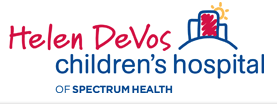
Helen DeVos Children's Hospital at Spectrum Health Helen DeVos Children's Hospital, located in Grand Rapids,...
Click here to add this to my saved trials
Connecticut Children's Medical Center Connecticut Children’s Medical Center is a nationally recognized, 187-bed not-for-profit children’s...
Click here to add this to my saved trials
University of Mississippi Medical Center The University of Mississippi Medical Center, located in Jackson, is...
Click here to add this to my saved trials
Bronson Methodist Hospital Our healthcare system serves patients and families throughout southwest Michigan and northern...
Click here to add this to my saved trials
Children's Mercy Hospital Children's Mercy Hospitals and Clinics continues redefining pediatric medicine throughout the Midwest...
Click here to add this to my saved trials
529 West Markham Street
Little Rock, Arkansas 72205
Little Rock, Arkansas 72205
(501) 686-7000
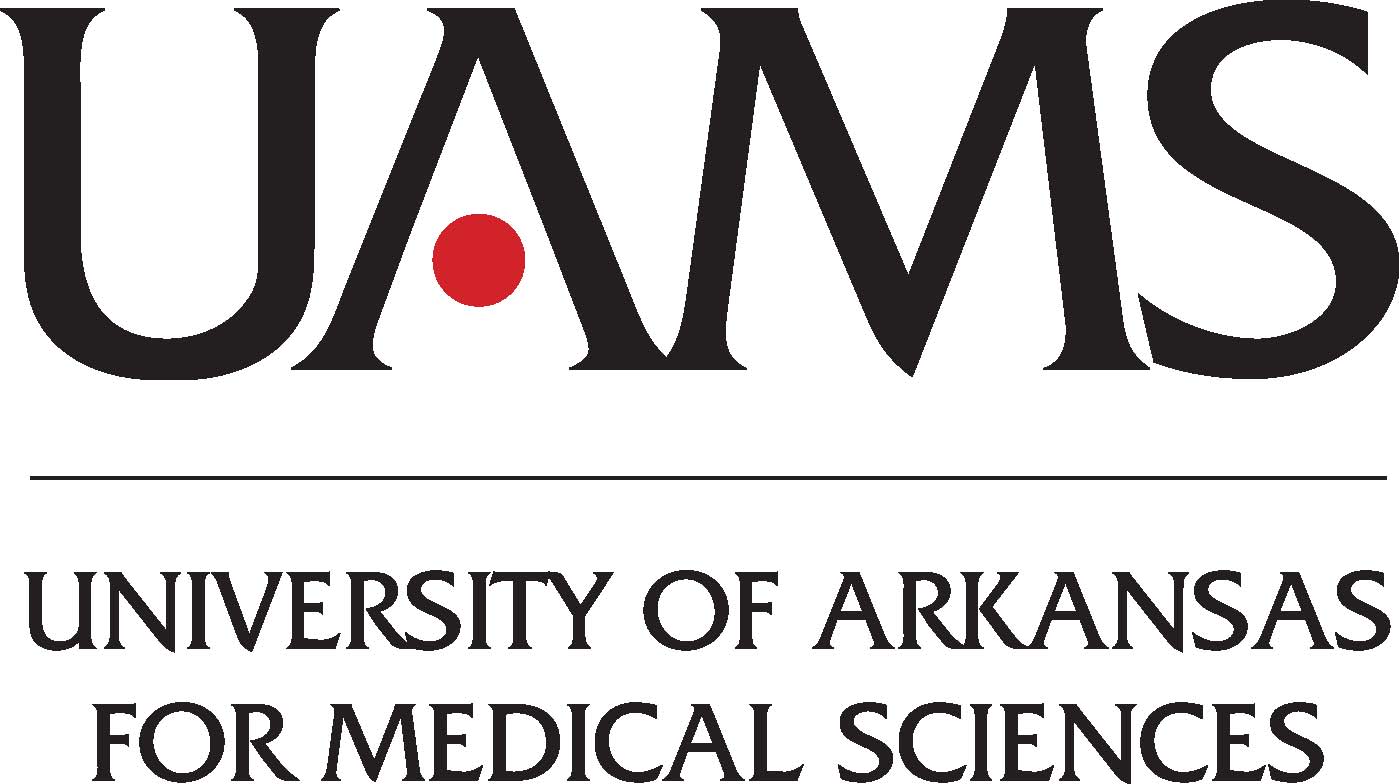
University of Arkansas for Medical Sciences The University of Arkansas for Medical Sciences (UAMS) in...
Click here to add this to my saved trials
Cedars Sinai Med Ctr Cedars-Sinai is known for providing the highest quality patient care. Our...
Click here to add this to my saved trials
Childrens Hospital Los Angeles Children's Hospital Los Angeles is a 501(c)(3) nonprofit hospital for pediatric...
Click here to add this to my saved trials
Covenant Children's Hospital Every child is different. And when they're sick or injured, they deserve...
Click here to add this to my saved trials
9300 Valley Children's Pl
Madera, California 93720
Madera, California 93720
(559) 353-3000

Children's Hospital Central California The Children's Hospital Central California is a not-for-profit, state-of-the-art children’s hospital...
Click here to add this to my saved trials
601 Children's Lane
Norfolk, Virginia 23507
Norfolk, Virginia 23507
(757) 668-7000

Children's Hospital of The King's Daughters Children
Click here to add this to my saved trials
747 52nd St
Oakland, California 94609
Oakland, California 94609
(510) 428-3000

Children's Hospital and Research Center Oakland For nearly 100 years, Children's Hospital & Research Center...
Click here to add this to my saved trials
Children's Hospital of Orange County For more than 45 years, CHOC Children’s has been steadfastly...
Click here to add this to my saved trials
1717 South Orange Avenue # 100
Orlando, Florida 32806
Orlando, Florida 32806
(407) 650-7000

Nemours Children's Clinic - Orlando Located near downtown Orlando, Nemours Children’s Clinic, Orlando is a...
Click here to add this to my saved trials
Nemours Children's Clinic - Pensacola Nemours Children’s Clinic, Pensacola serves children and families in northwest...
Click here to add this to my saved trials
Saint Jude Midwest Affiliate The Jim and Trudy Maloof St. Jude Midwest Affiliate Clinic was...
Click here to add this to my saved trials
Children's Hospital of Philadelphia Since its start in 1855 as the nation's first hospital devoted...
Click here to add this to my saved trials
4401 Penn Avenue
Pittsburgh, Pennsylvania 15224
Pittsburgh, Pennsylvania 15224
412-692-5325

Children's Hospital of Pittsburgh of UPMC UPMC is one of the leading nonprofit health systems...
Click here to add this to my saved trials
3181 Southwest Sam Jackson Park Road
Portland, Oregon 97239
Portland, Oregon 97239
503 494-8311

Oregon Health and Science University In 1887, the inaugural class of the University of Oregon...
Click here to add this to my saved trials
401 College Street
Richmond, Virginia 23298
Richmond, Virginia 23298
(804) 828-0450
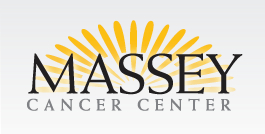
Virginia Commonwealth University Massey Cancer Center Founded in 1974, VCU Massey Cancer Center is a...
Click here to add this to my saved trials
University of Rochester The University of Rochester is one of the country's top-tier research universities....
Click here to add this to my saved trials
7700 Floyd Curl Dr
San Antonio, Texas 78229
San Antonio, Texas 78229
(210) 575-7000

Methodist Children's Hospital of South Texas Methodist Children
Click here to add this to my saved trials
4502 Medical Drive
San Antonio, Texas 78284
San Antonio, Texas 78284
(210) 567-7000
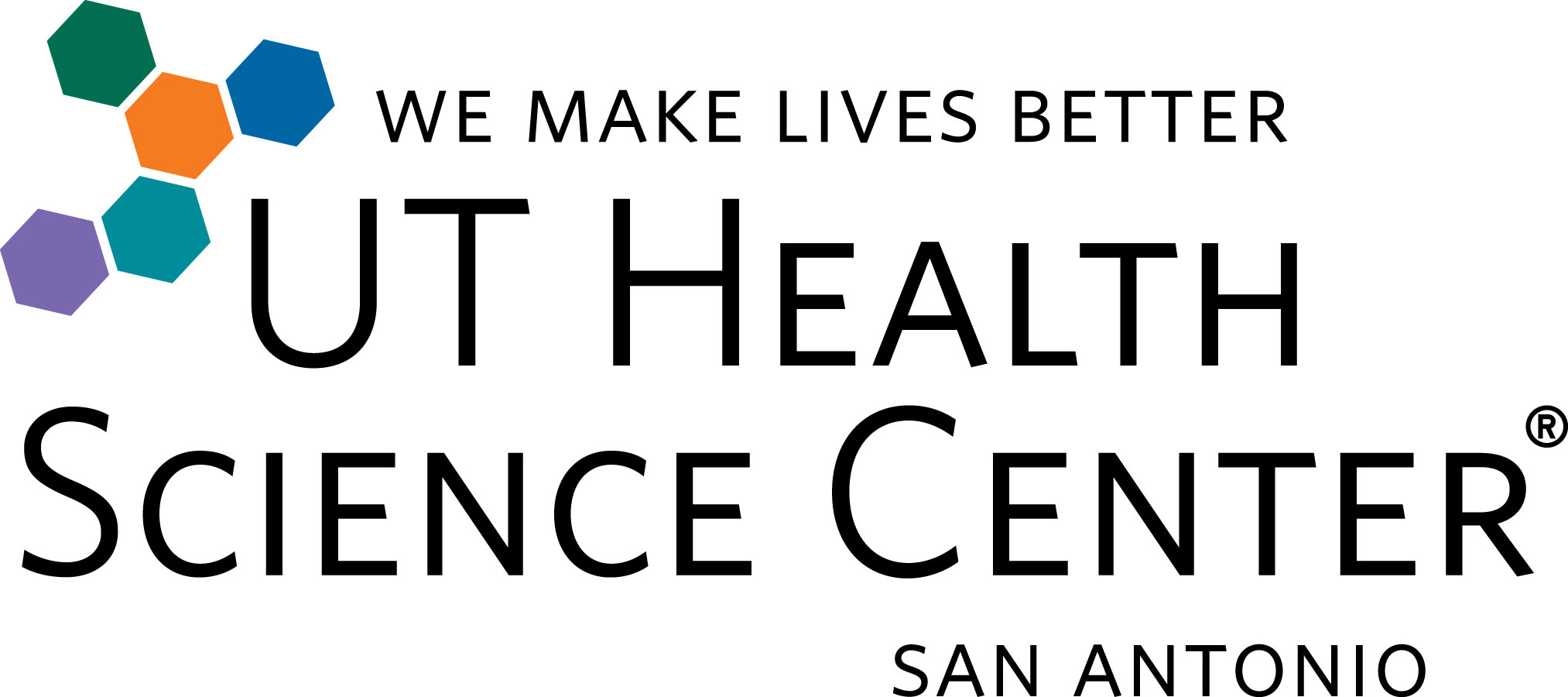
University of Texas Health Science Center at San Antonio The University of Texas Health Science...
Click here to add this to my saved trials
Rady Children's Hospital - San Diego Rady Children's Hospital-San Diego is the region’s pediatric medical...
Click here to add this to my saved trials
New York Medical College The College was founded in 1860 by a group of New...
Click here to add this to my saved trials
Alfred I. duPont Hospital for Children Nemours began more than 70 years ago with the...
Click here to add this to my saved trials
Click here to add this to my saved trials
Click here to add this to my saved trials
Click here to add this to my saved trials
C S Mott Children's Hospital Behind the doors of C.S. Mott Children's Hospital there exist...
Click here to add this to my saved trials
Click here to add this to my saved trials
Click here to add this to my saved trials
Click here to add this to my saved trials
Children's Hospital Colorado At Children's Hospital Colorado, we see more, treat more and heal more...
Click here to add this to my saved trials
401 North Broadway
Baltimore, Maryland 21287
Baltimore, Maryland 21287
410-955-5000

Johns Hopkins University-Sidney Kimmel Cancer Center The name Johns Hopkins has become synonymous with excellence...
Click here to add this to my saved trials
Sinai Hospital of Baltimore Sinai Hospital of Baltimore provides a broad array of high-quality, cost-effective...
Click here to add this to my saved trials
22 South Greene Street
Baltimore, Maryland 21201
Baltimore, Maryland 21201
410-328-7904

University of Maryland Greenebaum Cancer Center The University of Maryland Marlene and Stewart Greenebaum Cancer...
Click here to add this to my saved trials
Eastern Maine Medical Center Located in Bangor, Eastern Maine Medical Center (EMMC) serves communities throughout...
Click here to add this to my saved trials
8901 Rockville Pike
Bethesda, Maryland 20889
Bethesda, Maryland 20889
(301) 295-4000
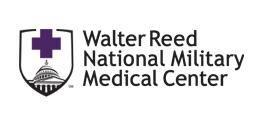
Walter Reed National Military Medical Center The Walter Reed National Military Medical Center is one...
Click here to add this to my saved trials
Click here to add this to my saved trials
Saint Luke's Mountain States Tumor Institute For more than 100 years, St. Luke
Click here to add this to my saved trials
Massachusetts General Hospital Cancer Center An integral part of one of the world
Click here to add this to my saved trials
Click here to add this to my saved trials
Click here to add this to my saved trials
171 Ashley Avenue
Charleston, South Carolina 29425
Charleston, South Carolina 29425
843-792-1414

Medical University of South Carolina The Medical University of South Carolina (MUSC) has grown from...
Click here to add this to my saved trials
3110 MacCorkle Avenue Southeast
Charleston, West Virginia 25304
Charleston, West Virginia 25304
Click here to add this to my saved trials
Click here to add this to my saved trials
Click here to add this to my saved trials
Click here to add this to my saved trials
Univ of Illinois A major research university in the heart of one of the world's...
Click here to add this to my saved trials
Click here to add this to my saved trials
5841 S Maryland Ave
Chicago, Illinois 60637
Chicago, Illinois 60637
1-773-702-6180

University of Chicago Comprehensive Cancer Center The University of Chicago Comprehensive Cancer Center (UCCCC) is...
Click here to add this to my saved trials
Cleveland Clinic Foundation The Cleveland Clinic (formally known as The Cleveland Clinic Foundation) is a...
Click here to add this to my saved trials
Click here to add this to my saved trials
Palmetto Health Richland Palmetto Health Richland, originally founded in 1892 as Columbia Hospital, has a...
Click here to add this to my saved trials
Click here to add this to my saved trials
Geisinger Medical Center Since 1915, Geisinger Medical Center has been known as the region’s resource...
Click here to add this to my saved trials
Click here to add this to my saved trials
Denver, Colorado 80218
Click here to add this to my saved trials
4160 John R St #2122
Detroit, Michigan 48201
Detroit, Michigan 48201
(313) 833-1785
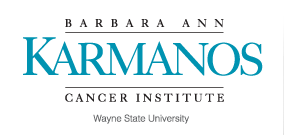
Wayne State University/Karmanos Cancer Institute Karmanos is based in southeast Michigan, in midtown Detroit, and...
Click here to add this to my saved trials
Saint John Hospital and Medical Center Founded in 1952, St. John Hospital and Medical Center...
Click here to add this to my saved trials
4760 Sunset Blvd
Downey, California 90027
Downey, California 90027
(323) 783-6151

Southern California Permanente Medical Group We
Click here to add this to my saved trials
Duke Univ Med Ctr As a world-class academic and health care system, Duke Medicine strives...
Click here to add this to my saved trials
Click here to add this to my saved trials
Click here to add this to my saved trials
Broward Health Medical Center Broward Health, providing service for more than 75 years, is a...
Click here to add this to my saved trials
Click here to add this to my saved trials
Cook Children's Medical Center Cook Children's Health Care System is a not-for-profit, nationally recognized pediatric...
Click here to add this to my saved trials
1600 Southwest Archer Road
Gainesville, Florida 32610
Gainesville, Florida 32610
Click here to add this to my saved trials
Click here to add this to my saved trials
East Carolina University Whether it's meeting the demand for more teachers and healthcare professionals or...
Click here to add this to my saved trials
900 West Faris Rd.
Greenville, South Carolina 29605
Greenville, South Carolina 29605
(864)455-8898
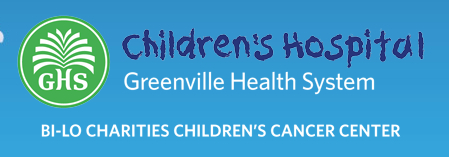
BI-LO Charities Children's Cancer Center The BI-LO Charities Children
Click here to add this to my saved trials
Click here to add this to my saved trials
Hackensack University Medical Center Hackensack University Medical Center, part of the Hackensack University Health Network,...
Click here to add this to my saved trials
Click here to add this to my saved trials
Click here to add this to my saved trials
Click here to add this to my saved trials
Tripler Army Medical Center The attack of Pearl Harbor led to the construction of Tripler...
Click here to add this to my saved trials
Click here to add this to my saved trials
1319 Punahou St
Honolulu, Hawaii 96826
Honolulu, Hawaii 96826
(808) 983-6000

Kapiolani Medical Center for Women and Children Hawai‘i Pacific Health is an integrated health care...
Click here to add this to my saved trials
Click here to add this to my saved trials
Riley Hospital for Children Riley Hospital for Children at IU Health is a place of...
Click here to add this to my saved trials
Click here to add this to my saved trials

